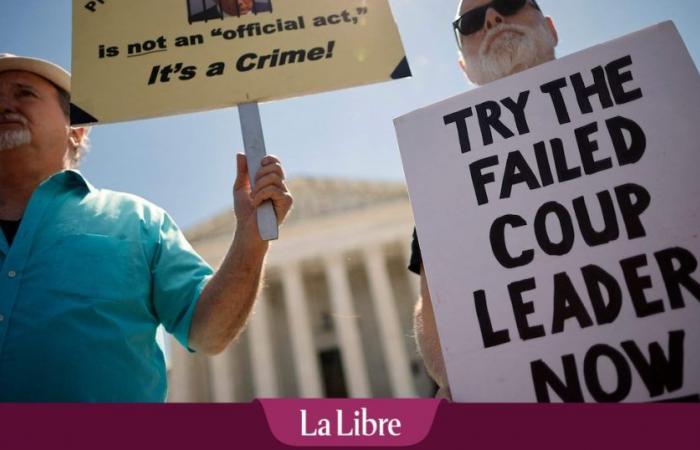This judgment has historic significance insofar as it helps to define the limits of presidential power. The Court, which was seized on April 25, is nonetheless criticized for the slowness with which it examined this case. We recall that in other times, she could be more eager to resolve the most serious questions.
In June 1971, for example, it took only four days, after the oral arguments, to prohibit the Nixon administration from blocking the publication by the New York Times of the Pentagon Papers on the secret history of the Vietnam War. Three years later, in July 1974, it took sixteen days to force the same administration to hand over to Congress the no less famous secret recordings that would precipitate the President’s downfall in the Watergate scandal. Closer to home, in the weeks following the memorable presidential election of 2000, the Supreme Court needed only twenty-four hours to decide to stop the recount of the ballots in Florida, thereby sending George W. Bush to the White House.
Let voters have their say first
From there to thinking that the conservative majority of the Supreme Court knowingly dragged on to help Donald Trump, there is only one step, all the more quickly taken since we know that three of the nine judges were appointed by the ‘former president. Certainly, the Court has shown on more than one occasion its desire for independence. However, in the present case, by taking its time, it de facto granted the Republican candidate the immunity he was seeking, by stopping the judicial clock and postponing indefinitely the trials he is facing. ‘object, in Washington and Georgia.
Simple consequence of the multiplicity of recourses, or deliberate strategy, also linked to the embarrassment caused by an unprecedented situation? It could, in fact, seem delicate to take decisions which would have resulted in excluding a candidate from the presidential election, especially one who appears to be a favorite. It could therefore be convenient to let the voters express themselves beforehand, by postponing the legal deadlines.
In any case, the late ruling on presidential immunity will most likely have the effect of preventing, for practical reasons, any new court appearance by Donald Trump before the November 5 election – the deadlines seem much too short. And, if he were to be elected, the defendant would thus enjoy a four-year reprieve. Can we then imagine trying in 2029, at the earliest, a former President for having “conspired against the United States of America” in 2020? Under these conditions, the trial that led to Donald Trump being convicted last month in connection with the secret payments to porn actress Stormy Daniels could well remain the only one. The sentence will be pronounced on July 11.






